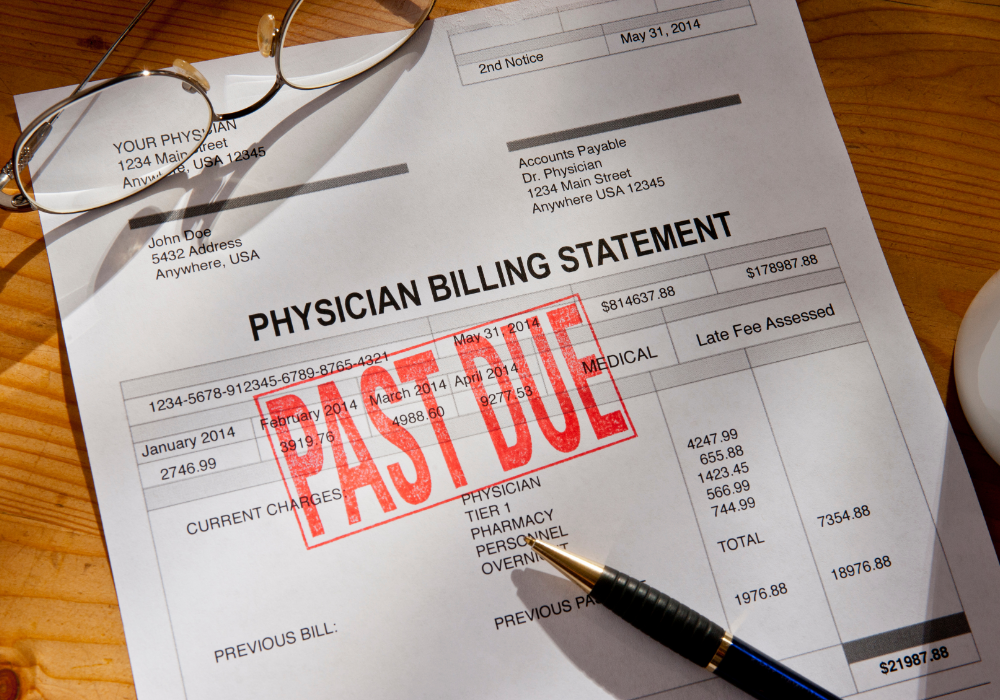Some treat chronic illness—others just sell supplements on Instagram. Can you tell the difference?

Holistic doctors are popping up everywhere—from trendy wellness centers to your TikTok feed—and they’re not all cut from the same cloth. Some are licensed MDs or DOs who’ve added integrative tools to their toolkit. Others are naturopathic doctors, chiropractors, or functional medicine practitioners with different training and philosophies. A few lean deeply into nutrition and detox protocols, while others focus on energy healing, acupuncture, or homeopathy.
It sounds promising—treating the whole person instead of just slapping on a prescription. But how do you know if someone’s a true healer or just a wellness influencer with a nice website and a diploma on the wall? With so many titles, approaches, and personalities in the mix, it’s getting harder to tell what’s legit and what’s just cleverly packaged hype. Your health deserves clarity, not confusion disguised as “holistic wisdom.”
1. Not all holistic doctors have the same type—or level—of medical training.

The title “holistic doctor” sounds official, but it doesn’t guarantee a traditional medical degree. Some are MDs or DOs with extra training in integrative or functional medicine. Others might be naturopaths, chiropractors, or health coaches with drastically different educational paths. That’s not necessarily bad—but it means you’ve got to dig into their credentials. Are they licensed to diagnose and treat illness? Can they prescribe medication if needed?
You’d be surprised how often people assume “doctor” means the same thing across the board. If someone’s advice sounds a little off or overly focused on supplements, it might be time to ask questions. Just because they wear a white coat doesn’t mean they went to med school—or that their advice is grounded in science.
2. Many legit holistic doctors do offer science-backed care—just with a broader lens.

A good holistic doctor won’t tell you to ditch your meds for moon water. They’ll look at your lifestyle, mental health, stress, sleep, and diet in addition to traditional labs and treatments. Some are conventional doctors who just got tired of writing prescriptions without ever digging deeper. They might order advanced tests, help you tweak your nutrition, or recommend acupuncture alongside conventional care.
This approach can feel refreshing if you’ve been brushed off by rushed doctors. But even with all the wellness buzzwords, some of these practitioners are doing the work—legitimately helping people who haven’t found answers elsewhere. The trick is finding one who blends compassion with real clinical knowledge. Those unicorns do exist—they’re just harder to find than influencers with wellness slogans and shiny branding.
3. Some holistic doctors lean so hard into “natural” that they ignore red flags.

You might walk in with a serious issue—say, a weird lump or recurring pain—and walk out with a juice cleanse and an adaptogen supplement. That’s a problem. A holistic approach should never mean skipping over real diagnoses. But some practitioners get caught up in the “treat root causes” mindset and miss the obvious stuff.
They may downplay traditional medicine, refuse to refer you out, or suggest alternative therapies that haven’t been tested in rigorous trials. That doesn’t mean they’re bad people—but it does mean you need to stay alert. If they dismiss legitimate medical concerns or wave off red-flag symptoms, trust your gut. Holistic care should expand your options, not replace the ones that might actually save your life.
4. The supplement game is massive—and yes, it’s making them rich.

It’s not just about your health for some of these practitioners—it’s also about their affiliate codes. Many holistic doctors recommend personalized supplement protocols, but the lines get blurry when they’re selling their own branded products or earning a cut from every sale. That vitamin cabinet they push? It’s often a big part of their income. That doesn’t mean every supplement is a scam—some can be incredibly helpful when used properly. But when you’re walking out of an appointment with $500 worth of pills and powders, it’s fair to raise an eyebrow.
If their advice always circles back to a product they profit from, you may want to question whether it’s health-driven or wallet-driven. Your well-being shouldn’t come with a shopping cart and upsell.
5. Holistic doctors often spend way more time with you—and that matters.

One of the biggest draws of holistic care? You finally feel heard. These practitioners often spend 60 to 90 minutes (or more) really digging into your lifestyle, history, and goals. You’re not rushed out the door in 10 minutes with a generic prescription.
That deeper attention can feel like a breath of fresh air, especially if you’ve had bad experiences with dismissive providers. Holistic doctors tend to ask better questions and look for patterns that others miss. That thoroughness is a big part of what makes people trust them. So yes, it often costs more—but many patients feel like the time, empathy, and detail are worth every penny. Just make sure it’s not all talk with no action—or solutions wrapped in vague advice.
6. Some treat “diagnoses” that don’t actually exist in mainstream medicine.

If you’ve ever heard terms like “adrenal fatigue,” “leaky gut,” or “estrogen dominance” tossed around casually, you’ve been in holistic territory. These aren’t always recognized by conventional medicine—and that’s where things get dicey. Some of these conditions have shaky science or no agreed-upon diagnostic criteria, but they’re still treated as gospel in some wellness circles.
You might be put on protocols, supplements, or restrictive diets to “fix” something your primary doctor doesn’t even believe is real. That doesn’t mean your symptoms aren’t valid. But be cautious when a practitioner builds a whole treatment plan around trendy buzzwords without solid evidence. If their diagnosis can’t be measured, tested, or explained clearly, you deserve more than a shrug and a supplement.
7. Holistic medicine often appeals most to people failed by the system.

If you’ve been ignored, misdiagnosed, or left without answers, you’re probably exactly the kind of patient who walks through a holistic doctor’s door. And honestly? That’s understandable. Western medicine has major flaws—rushed appointments, insurance nightmares, and symptom-based treatments that don’t always look deeper. Holistic care promises something different: more time, more listening, and often, more hope. For people dealing with chronic illness, fatigue, autoimmune issues, or anxiety, that’s gold.
But it also makes you vulnerable to solutions that feel good but aren’t always rooted in fact. Being failed by one system doesn’t mean you should accept anything just because it’s different. Your pain is real—but it still deserves real answers, not just vibes and vague protocols.
8. You should never be told to stop seeing your primary doctor.

A red flag wrapped in wellness language? “You don’t need your regular doctor anymore.” Run. A holistic doctor should work with—not against—your existing medical care. If they discourage basic screenings, vaccinations, or critical medications, that’s not alternative—it’s reckless. A good practitioner will tell you when to go get a second opinion, order mainstream labs, or refer you to a specialist when needed.
They should never position themselves as the only person you need. Whole-body care means exactly that—it includes your actual body, and sometimes your body needs a CT scan, not a celery juice cleanse. If they isolate you from conventional care, it’s not holistic—it’s dangerous. Collaboration beats ego every time.
9. Holistic care can be powerful—when it’s grounded in balance, not extremes.

The best holistic doctors don’t bash modern medicine—they blend it with lifestyle, prevention, and mind-body insight. They’ll recommend better sleep habits and order bloodwork. They’ll explore emotional health and refer you to a specialist if needed. When done right, holistic care can help you uncover patterns and solutions that traditional medicine misses. But when it leans into extremes—like detox fads, anti-vaccine rhetoric, or fear-mongering around food—it loses credibility.
The key is balance. You want someone who believes in wellness and science, who listens deeply and relies on evidence. That sweet spot exists. And when you find it, your health doesn’t just improve—it finally feels like your care makes sense.